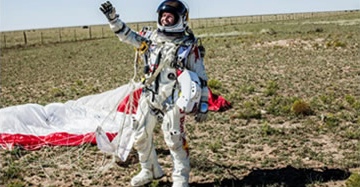 A viral hit can get great results for brands, however, it requires a serious forethought and planning in order to craft something unique, relevant and creative that will inspire people to share with others.
A viral hit can get great results for brands, however, it requires a serious forethought and planning in order to craft something unique, relevant and creative that will inspire people to share with others.
More and more, brands are beginning to realise that generating exceptional and compelling content is key to winning the online world. And there’s nothing more exciting for a brand than positive word of mouth spread across multiple social networks. However, no matter how brilliant, creative or clever your campaign, not every great piece of content is inherently viral. It has to be something relevant so that viewers will be eager to share with their friends.
By its very nature, viral marketing is an organic and self-replicating process. It depends on key factors such as: how your message is capable of attracting your audience; how people will be sharing it; and in which context they are placing your content. Creating a successful viral communication is a form of art that requires more observation and practice than everything else.
The true opportunity to spread your idea is to carefully select influential individuals who can spark activity and response. A brand that has succeeded with a brilliantly crafted viral communication is Old Spice. By focusing on the fans first, the brand received a huge amount of buzz with a series of videos featuring Isaiah Mustafa, the ‘Old Spice Guy’, personally responding tweets and comments from the press, fans and celebrities. The award-winning campaign was widely celebrated for its innovative use of social media, raising the profile and sales of the brand.
Similar to Old Spice, feminine hygiene brand Bodyform created a video response to a post on its Facebook page, and in turn, has set new standards for the ways brands should respond to complaints on social networks. After an irritated boyfriend, Richard Neill posted a rant on Bodyform’s Facebook Wall, humorously calling out the brand for false advertising, the company hit back with a brilliant spoof apology via a Youtube video. The original and unique response from the brand’s fictional CEO, went instantly viral, as the best response ever, gathering thousands of likes and comments on the brand’s Facebook page.
Some companies have grown quite successful at producing content that goes viral. If we take a recent example from Red Bull. The success of the Red Bull Stratos project lies in the value of human endurance and adventure, which brings to life a genuine excitement around the fearless skydiver Felix Baungarther. His daredevil record breaking jump from 128,000 feet above the earth has set a record on Youtube for the largest audience watching a live stream through the site – more than 8 million people worldwide. The buzz generated from the Red Bull stunt; lots of PR coverage, thousands of likes, comments and shares on Facebook, and worldwide trending topics on Twitter, delivered great value to keep the brand at the forefront of people’s mind. Yet, it engaged people in a positive way, creating genuine conversations across the globe.
In a nutshell, people share things that they perceive to have value. Whether organic or proactively marketed, the first group of individuals who are exposed to the content are the ones who will determine the extent and reach of your campaign. To trigger an endless array of retweets, likes and attract fans and followers to your group, your content has to be reactive, relevant and entertaining. Ideas connect initially because they are relevant or personal. Furthermore, the replication of your campaign should be absolutely effortless. By including the right sharing buttons, a customised hashtag, it will make it easier for people to find your content and use social media to disseminate your message with just a click.
What is the best viral marketing campaign in your opinion? We’d love to hear from you. Leave your comment below or tweet us your thoughts @Hotcow!
